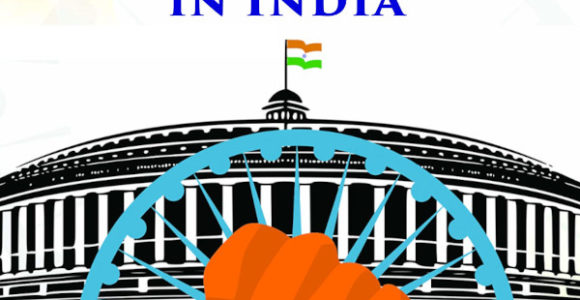
TRAI’s Voice and SMS-Only Plans: Telecom Giants’ Tactics and Consumer Concerns
Telecom Companies Push Back Against TRAI’s Voice and SMS-Only Plan Directive
Private telecom companies like Jio, Airtel, and Vodafone Idea have raised strong objections to a directive issued by the Telecom Regulatory Authority of India (TRAI), which mandated the introduction of affordable voice and SMS-only plans. TRAI’s intent was to offer consumers, particularly in rural areas or those without internet access, the option to choose cheaper voice and SMS services without being forced into data plans. However, these telecom giants expressed concern that offering such plans could hinder India’s digital progress, potentially slowing the country’s shift to a more connected, internet-driven future.
The Industry’s Concerns: A Step Backward for Digital India?
Telecom players argued that implementing cheaper voice and SMS-only plans would disrupt the nation’s digital growth. They worried that reducing the focus on data plans would reverse the advancements India has made, potentially bringing back outdated 2G services. Their stance was clear: rather than regressing, India should continue to focus on moving forward with digital adoption and expanding internet access.
TRAI’s Firm Stance: Choice for the Consumer
Despite the telecom companies’ opposition, TRAI maintained its position. The regulatory body emphasized that consumers should have the freedom to choose voice and SMS plans without being forced into data services. TRAI’s order required telecom companies to introduce these affordable voice and SMS-only packs by mid-January, one month after the initial order was issued on December 17th. The goal was to provide a more inclusive option for people who either don’t need data or don’t have access to the internet.
Telecom Companies Launch Plans, But Do They Meet Expectations?
When the telecom companies finally rolled out their new plans, it became clear that while they technically followed TRAI’s directive, the pricing structure raised concerns. These new plans seemed designed in a way that made them less attractive compared to data-inclusive plans. Telecom companies like Jio, Airtel, and Vodafone Idea introduced voice and SMS-only packs that appeared to be priced higher than expected, potentially discouraging customers from choosing them.
Examples of New Voice and SMS-Only Plans
Here’s a breakdown of the new plans offered by these telecom giants:
- Jio launched a Rs 499 plan that offers unlimited voice calls and 900 SMS for 84 days. This plan offers no data and costs about Rs 5.95 per day for voice and SMS only.
- Airtel introduced a Rs 458 plan with unlimited voice calls and 1000 SMS for 84 days, but like Jio’s offering, it excludes data services.
- Vodafone Idea released a Rs 1958 plan for one year, offering unlimited voice calls and 3600 SMS, but this package is considerably more expensive compared to data plans that include both data and voice services.
Do These Plans Really Offer Consumers Affordable Options?
The issue with these new plans is that they don’t seem to align with the original purpose of TRAI’s directive—to offer affordable alternatives to customers who don’t need data. While these plans technically provide the requested services, their pricing structure is not significantly lower than that of data-inclusive plans, which makes them less appealing to consumers. For example, Jio’s previous Rs 479 plan offered 6 GB of high-speed data, unlimited voice calls, and 1000 SMS for 84 days. The new Rs 458 plan, however, only offers voice and SMS without data, forcing customers to purchase a separate recharge for data, which ultimately increases the total cost.
Are Telecom Companies Playing Games with TRAI’s Directive?
The pricing decisions have led many to believe that telecom companies may be intentionally making these voice and SMS-only plans less attractive. By doing so, they are subtly encouraging customers to opt for higher-priced data plans that still include voice services, making the voice-only plans seem unnecessary. This raises the question: are these companies deliberately designing these plans to make them appear expensive, thus pushing consumers toward data packages?
Public Backlash: Consumers and Advocacy Groups Speak Out
The public and consumer advocacy groups have been vocal about their concerns. Many argue that the purpose of TRAI’s order was to ensure that affordable options for voice and SMS services are available, especially for those who don’t need or can’t access the internet. Instead, the telecom companies have created plans that don’t provide a true alternative to data services, rendering the whole initiative ineffective.
TRAI Takes Notice: Will They Intervene?
In response to growing criticism, TRAI issued a statement acknowledging that it had received reports about the newly launched voice and SMS-only packs. The authority clarified that telecom companies must inform TRAI about these plans within seven working days of their launch. TRAI also stated that it would review these plans to ensure they comply with its guidelines, which focus on providing affordable and accessible options for consumers.
The Path Forward: Will TRAI Act?
TRAI’s review of these new plans will determine whether they align with the original goals of the order. The key issue is whether the plans are genuinely affordable for the target audience, which includes consumers in rural areas and those who use basic phones. If these plans are found to be overpriced or ineffective, TRAI could force telecom companies to revise their pricing strategies.
Conclusion: A Crucial Test for TRAI’s Authority
This situation highlights the ongoing struggle between regulatory bodies and telecom companies, with the ultimate goal being to balance the needs of consumers and the business interests of telecom providers. If TRAI intervenes and forces these companies to offer more reasonable pricing for voice and SMS plans, it will send a strong message about the importance of affordable telecom services for all. The next steps in this saga will be closely watched, as they could have significant implications for India’s telecom sector and its digital future.
We will have to wait and see how TRAI responds to the growing concerns and whether they take action to ensure that the original intent of their directive is honored. Stay tuned as this issue continues to unfold.
Key Terms:
- affordable plans ,
- Airtel ,
- basic phone users ,
- consumer concerns ,
- consumer rights ,
- data vs voice plans ,
- Digital India ,
- India digital growth ,
- Jio ,
- rural telecom services ,
- SMS-only packs ,
- telecom companies ,
- telecom compliance ,
- telecom industry ,
- telecom pricing ,
- telecom regulations ,
- telecom tariffs ,
- TRAI ,
- TRAI directive ,
- Vodafone Idea ,
- voice and SMS plans ,
- voice-only packs
Disclaimer: The information provided here has been compiled from various sources to the best of our knowledge. While every effort has been made to ensure the accuracy of the details, there may be occasional errors or omissions. If you find any discrepancies or incorrect information, kindly inform us so we can make the necessary corrections. Thank you for your understanding and cooperation.







